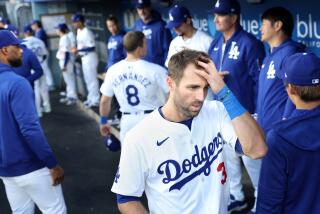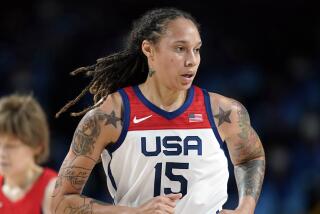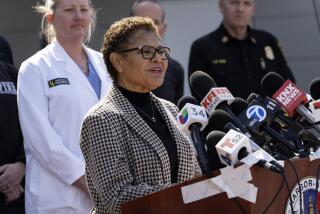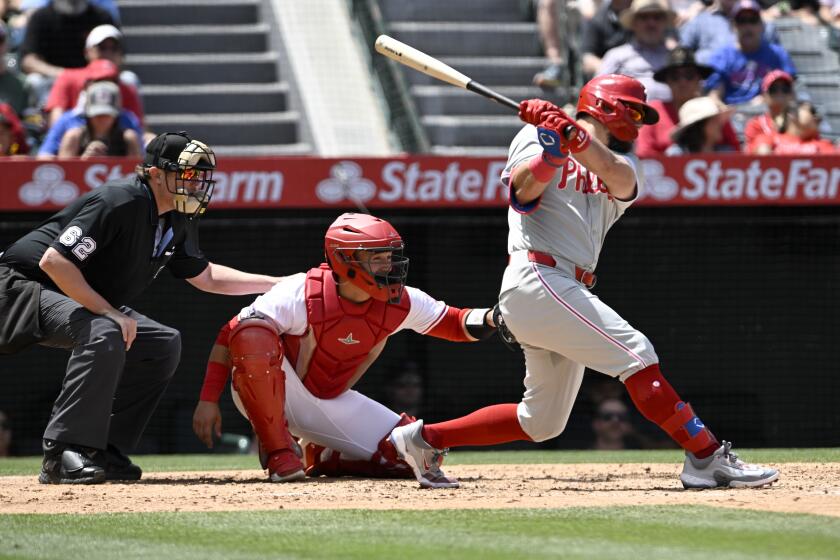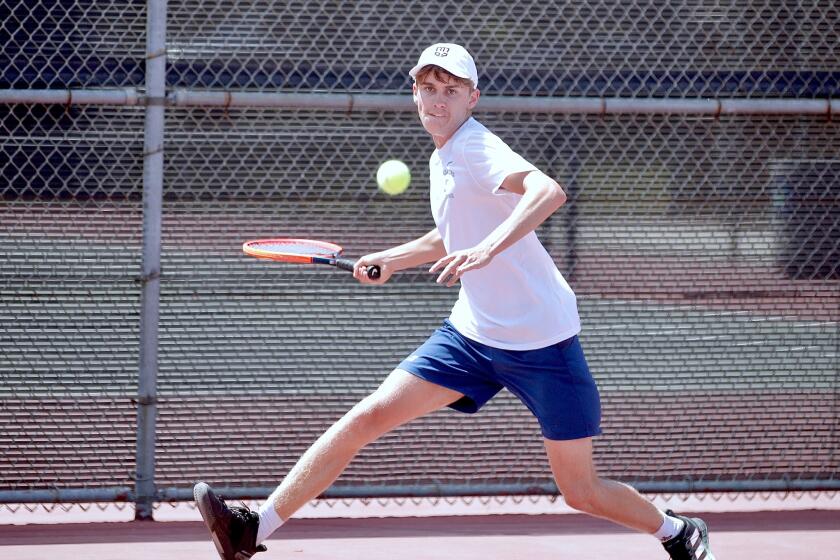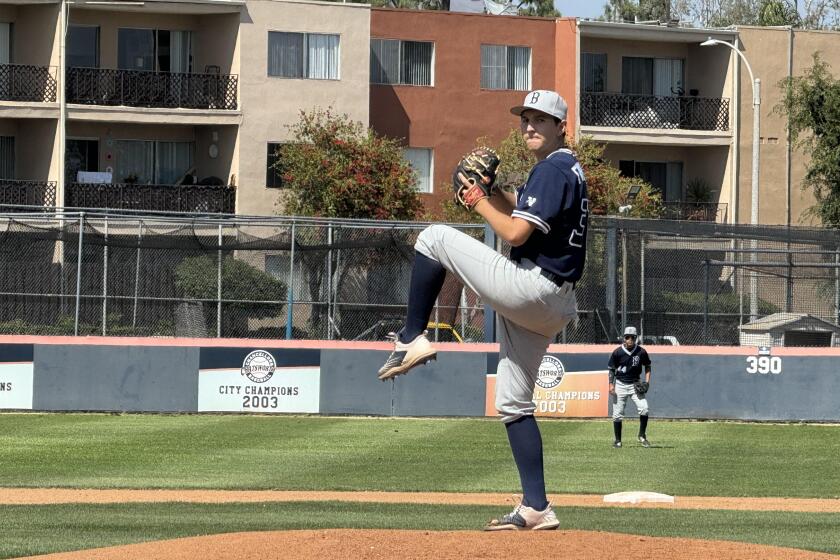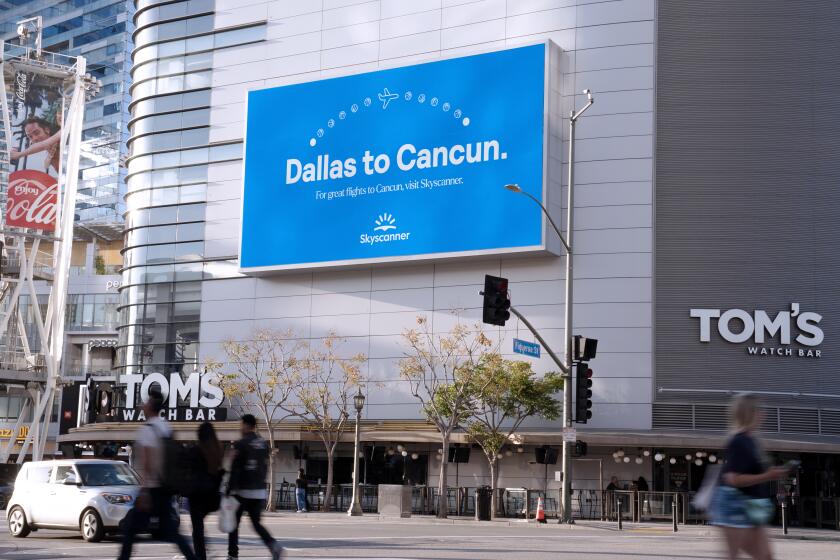Upshaw tells of omission
WASHINGTON -- Gene Upshaw, head of the NFL Players Assn., sat in a meeting room at the union’s headquarters Wednesday and explained why the names of four retired NFL players were buried in his testimony to the Senate Commerce Committee the day before.
In that testimony, Upshaw had asked Congress to alter a seemingly arcane part of federal law governing pension and disability plans -- a change that would give the union control of the board instead of sharing it with the NFL.
The connection to the four players is straightforward.
Dave Pear, Brent Boyd, Daryl Johnston and Conrad Dobler all had success on the field, particularly Dobler, a St. Louis Cardinals offensive lineman who earned an on-the-field reputation for nasty hits. Years later, all four filed disability claims, contending that their many medical problems were because of the battering they endured as players. If such a charge can be proven, it would mean higher monthly payouts.
The change in the law that Upshaw seeks would change the structure of a retirement board that now has six members -- three appointed by the NFLPA, and three by the NFL.
Had that change been made years earlier, Upshaw contended on Wednesday, the outcome of these four cases arguably would have turned out differently.
According to data provided by the NFLPA, the union-appointed board members voted to award benefits -- or a higher level of benefits -- to all four men. The three league-appointed members voted no, according to the NFLPA.
“When the vote is split 3-3, it’s never been the player representatives who’ve voted against it, I can guarantee you that,” Upshaw said Wednesday. “We voted on behalf of those guys.”
The union made public the information about the players, Upshaw said, because each had publicly criticized the union’s role during the disability application process. In addition to testifying, Pear and Dobler joined Boyd and Johnston at a post-hearing news conference Tuesday, during which a dozen former players described how, from their vantage point, the union had let them down.
Under current law, votes that result in a tie are turned over to an arbitrator or a supposedly neutral doctor to make a final determination.
In each of these cases, the players were stuck with no disability award at all or with a lower monthly check because it was determined that their cases didn’t pass muster.
Boyd testified Tuesday that the NFL is fighting to avoid full liability for what players endured, including serving “as guinea pigs” for new playing surfaces. “We literally played on concrete, and many concussions did not involve hitting another player but just the ground, and it ruined knees and bodies as well as minds.”
For months, Upshaw has been waging a public battle with former players over the union’s obligations to retirees who have medical issues. And, on Wednesday, he described the four board votes as proof that the retirement system would run smoother if the union didn’t have to share control.
“That fact always seems to get lost in the discussion,” said Upshaw, referring to the votes.
As he told the hearing, “Since the NFLPA has been criticized when applications are denied . . . and since current players are funding the system, it makes sense for the players to be the ones making the disability decisions.”
“Let the player trustees decide, is all we’re asking,” Upshaw said Wednesday. “If [Congress] is really serious about trying to do something helpful, why don’t they give that a try?”
--
More to Read
Get our high school sports newsletter
Prep Rally is devoted to the SoCal high school sports experience, bringing you scores, stories and a behind-the-scenes look at what makes prep sports so popular.
You may occasionally receive promotional content from the Los Angeles Times.
